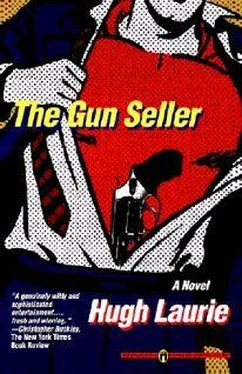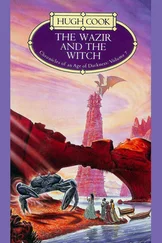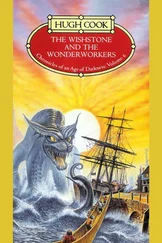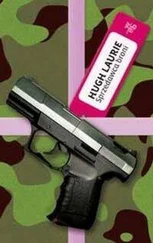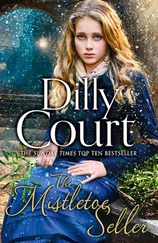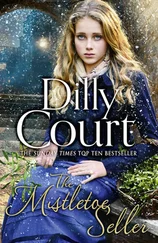Hugh Laurie - The Gun Seller
Здесь есть возможность читать онлайн «Hugh Laurie - The Gun Seller» весь текст электронной книги совершенно бесплатно (целиком полную версию без сокращений). В некоторых случаях можно слушать аудио, скачать через торрент в формате fb2 и присутствует краткое содержание. Жанр: Шпионский детектив, на английском языке. Описание произведения, (предисловие) а так же отзывы посетителей доступны на портале библиотеки ЛибКат.
- Название:The Gun Seller
- Автор:
- Жанр:
- Год:неизвестен
- ISBN:нет данных
- Рейтинг книги:4 / 5. Голосов: 1
-
Избранное:Добавить в избранное
- Отзывы:
-
Ваша оценка:
- 80
- 1
- 2
- 3
- 4
- 5
The Gun Seller: краткое содержание, описание и аннотация
Предлагаем к чтению аннотацию, описание, краткое содержание или предисловие (зависит от того, что написал сам автор книги «The Gun Seller»). Если вы не нашли необходимую информацию о книге — напишите в комментариях, мы постараемся отыскать её.
The Gun Seller — читать онлайн бесплатно полную книгу (весь текст) целиком
Ниже представлен текст книги, разбитый по страницам. Система сохранения места последней прочитанной страницы, позволяет с удобством читать онлайн бесплатно книгу «The Gun Seller», без необходимости каждый раз заново искать на чём Вы остановились. Поставьте закладку, и сможете в любой момент перейти на страницу, на которой закончили чтение.
Интервал:
Закладка:
Casablancais fat, sprawling, and industrial; a city of concrete-dust and diesel fumes, where sunlight seems to bleach out colour, instead of pouring it in. It hasn’t a sight worth seeing, unless half-a-million poor people struggling to stay alive in a shanty-town warren of cardboard and corrugated iron is what makes you want to pack a bag and jump on a plane. As far as I know, it hasn’t even got a museum.
You may be getting the idea that I don’t likeCasablanca. You may be feeling that I’m trying to talk you out of it, or make your mind up for you; but it really isn’t my place to do that. It’s just that, if you’re anything like me - and your entire life has been spent watching the door of whatever bar, cafe, pub, hotel, or dentist’s surgery you happen to be sitting in, in the hope that Ingrid Bergman will come wafting through in a cream frock, and look straight at you, and blush, and heave her bosom about the place in a way that says thank God, life does have some meaning after all - if any of that strikes a chord with you, then Casablanca is going to be a big fucking disappointment.
We had divided ourselves into two teams. Fair skin, and olive skin.
Francisco, Latifa, Benjamin and Hugo were the Olives, while Bernhard, Cyrus and I made up the Fairs.
This may sound unfashionable. Even shocking. Perhaps you were busy imagining that terrorist organisations are equal opportunities employers, and that distinctions based on skin colour simply have no place in our work. Well, in an ideal world, perhaps, that’s how terrorists would be. But inCasablanca, things are different.
You cannot walk the streets ofCasablanca with fair skin.
Or, at least, you can, but only if you’re prepared to do it at the head of a crowd of fifty scampering children, who call, and shout, and point, and laugh, and try and sell you American dollars, good price, best price, and hashish likewise.
If you’re a tourist with fair skin, you take this as it comes. Obviously. You smile back, and shake your head, and sayla, shokran - which causes even more laughter, and shouting, and pointing, which in turn causes another fifty children to come and follow your pied pipe, all of whom, strangely, have also got the best price for American dollars - and, generally, you do your best to enjoy the experience. After all, you’re a visitor, you look strange and exotic, you’re probably wearing shorts and a ridiculous Hawaiian shirt, so why the hell shouldn’t they point at you? Why shouldn’t a fifty yard journey to the tobacconist’s take three-quarters of an hour, and stop traffic in all directions, and just about make the late editions of the Moroccan evening papers? This is why you went abroad, after all. To be abroad.
That’s if you’re a tourist.
If, on the other hand, you went abroad in order to take over an American consulate building with automatic weapons, so that you could hold the consul and his staff to ransom, demand ten million dollars and the immediate release of two hundred and thirty prisoners of conscience, and then leave by private jet, having mined the building with sixty kilos of C4 plastic explosive - if that’s what you nearly put in the Purpose Of Visit box on the immigration form but didn’t, because you’re a highly-trained professional who doesn’t make slips like that - then frankly you can do without the staring and pointing stuff from kids on the street.
So the Olives were to work the surveillance, while the Fairs prepared for the assault.
We had taken over an abandoned school building in the Hay Mohammedia district. It might once have been a classy, grassy suburb, but not any more. The grass had long since been laid over by the corrugated iron house-builders, the drains were ditches by the side of the road, and the road was something that might get built eventually. Inshallah.
This was a poor place, full of poor people, where food was bad and scarce, and fresh water was something that old people told their grandchildren about on long winter evenings. Not that there were many old people in Hay Mohammedia. Here, the part of an old person was usually played by a forty-five year old with no teeth, courtesy of the achingly-sweet mint tea that stood in for a standard of living.
The school was a large building. Two storeys high on three sides, built round a cement courtyard, where children must once have played football, or said prayers, or had lessons in how to bother Europeans; and round the outside there was a fifteen foot wall, broken only by a single, iron-sheeted gate that led into the courtyard.
It was a place where we could plan, and train, and relax. And have violent arguments with each other.
They began as small, trifling things. Sudden irritations over smoking, and who had the last of the coffee, and who’s going to sit in the front of the Land Rover today. But they seemed, gradually, to be getting worse.
At first, I put them down to straightforward nerves, because the game we were playing here was bigger, much bigger, than anything we’d tried so far. It made Mьrren seem like a piece of cake, without marzipan.
The marzipan inCasablanca was the police, and maybe they had something to do with the increasing tension, and the sulks, and the arguments. Because they were everywhere. They came in dozens of shapes and sizes, with dozens of different uniforms that signified dozens of different powers and authorities, most of which boiled down to the fact that, if you so much as glanced at them in a way they didn’t like, they could fuck up your life for ever.
At the entrance to every police station inCasablanca, for example, stood two men with machine pistols.
Two men. Machine pistols. Why?
You could stand there all day, and you could watch these men as they conspicuously caught not one criminal, quelled not one riot, beat off not one invasion by a hostile foreign power - did not do, in fact, one thing that made the average Moroccan’s life better in any way.
Of course, whoever decided to spend the money on these men - whoever decreed that their uniforms should be designed by a Milanese fashion-house, and that their sunglasses should be of the wrap-around type - would probably say ‘well of course we haven’t been invaded, because we have two men outside every police station with machine pistols and shirts that are two sizes too small for them’. And you’d have to bow your head and leave the office, walking backwards, because there’s no dealing with logic like that.
The Moroccan police are an expression of the state. Picture the state as a larger bloke in a bar, and picture the populace as a small bloke in the same bar. The large bloke bares a tattooed bicep, and says to the small bloke ‘did you spill my beer?’
The Moroccan police are the tattoo.
And for us, they were definitely a problem. Too many brands of them, too many of each brand, too heavily-armed, too everything.
So maybe that’s why we’re getting jumpy. Maybe that’s why, five days ago, Benjamin - softly spoken Benjamin, who loves chess, and once thought he would become a rabbi - maybe that’s why Benjamin called me a fucking shit bastard. We were sitting round the trestle table in the dining-hall, chewing our way through a tajine stew, cooked by Cyrus and Latifa, and nobody was feeling much like talking. The Fairs had spent the day constructing a full scale mock-up of the front part of the consulate offices, and we were tired, and smelt of timber.
The model stood behind us now, like the set of a school pantomime, and every now and then somebody would look up from their food and examine it, wondering whether they’d ever get to see the real thing. Or, having seen it, whether they’d ever get to see anything else.
‘You’re a fucking shit bastard,’ said Benjamin, leaping to his feet and standing there, clenching and unclenching his fists.
Читать дальшеИнтервал:
Закладка:
Похожие книги на «The Gun Seller»
Представляем Вашему вниманию похожие книги на «The Gun Seller» списком для выбора. Мы отобрали схожую по названию и смыслу литературу в надежде предоставить читателям больше вариантов отыскать новые, интересные, ещё непрочитанные произведения.
Обсуждение, отзывы о книге «The Gun Seller» и просто собственные мнения читателей. Оставьте ваши комментарии, напишите, что Вы думаете о произведении, его смысле или главных героях. Укажите что конкретно понравилось, а что нет, и почему Вы так считаете.
